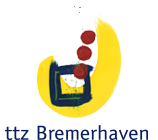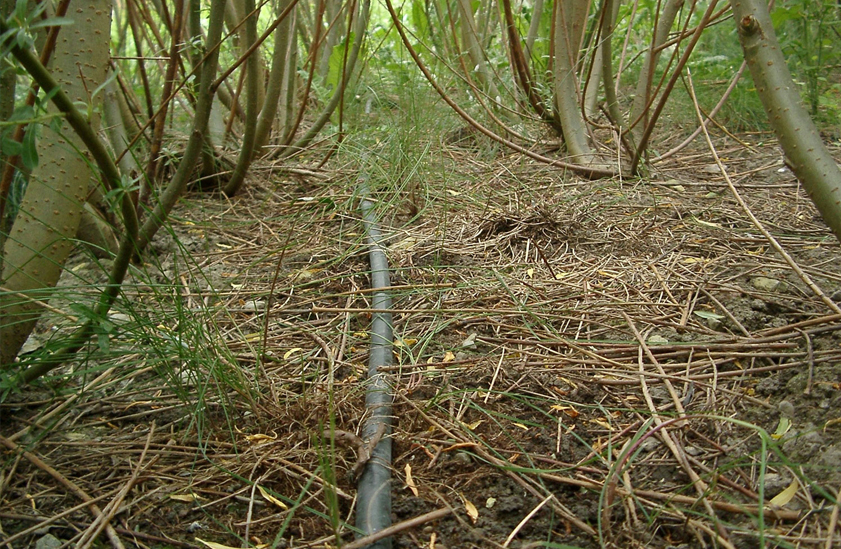The production of biomass is opening up new perspectives for the agricultural sector. Scarce water supplies and rising fertiliser costs are making it difficult to cover the cost of cultivating arable land. One solution can be the closed loop utilisation of black and grey water for biomass production which could treble the efficiency of systems deployed to date. In BIOPROS, an EU project headed by ttz Bremerhaven, partners from 12 countries are working on disseminating know-how on the safe use of wastewater in order to encourage biomass production in the predominantly rural eastern countries of the EU and southern European regions with low precipitation.
Bremerhaven, December 2008. The requirements imposed by EU legislation regarding environmental protection and agriculture in the Member States are forcing the hand above all of those countries which have to date managed for the most part without any treatment systems for their wastewater. In terms of the investment they need to make in production infrastructure, manufacturers are faced with a choice: Either invest in better equipment imported from abroad or else attract farmers in the region as customers for black and grey water. In the case of the second option, a major part of the investment flows back into the long-term development of their own region.
In co-operation with agricultural associations, the consortium of the EU BIOPROS project wants to disseminate on a broader scale knowledge about the safe and efficient use of municipal wastewater for biomass production. The potential for agriculture and eco-balance speaks for itself: 10% additional income from the use of wastewater could considerably improve the farmers’ position and make them less dependent on subsidies. In addition, they also save the costs for nitrate fertilisers. At the current rise in prices (prices have doubled within two years), this is an important factor. The demand for CO2-neutral energy sources is immense and customers therefore guaranteed. The saving of natural water resources through irrigation with wastewater can amount to about 70% in arid regions. For the operators of treatment plants, there are potential cost savings of up to 50% for wastewater treatment.
So that the closed loop recycling model is implemented competently and mistakes in its application avoided, the BIOPROS partners are endeavouring to establish standards. During the three-year project, best-practice models and cost analyses were developed which are now being communicated to potential users via agricultural associations in Sweden, Bulgaria, Poland, Estonia, Czech Republic, Slovakia, Italy and Spain. Several hundred interested persons – energy producers, farmers, process engineers – have already benefited from training sessions throughout Europe.
In this system, farmers are paid for using the wastewater, the contents of which can partly replace nitrogen fertilisers. Fast-growing plants compensate for the leaching of nutrients from the soil when they lose their leaves which form humus. Poplars and willow trees can be harvested after only two to four years and used as biomass for the CO2-neutral production of energy. In this application, there are no hygiene problems. Further diffusion is currently however hindered by insufficient awareness about the potential of safe wastewater use and/or rejection of the use of black and grey water. In addition, legislation in some countries greatly restrict its utilisation.
The use of the closed loop system in accordance with the guidelines of the BIOPROS consortium has already proved itself in a wider context: The entire recycling system in a community in Sweden is regulated using this process. “Ponds are used in winter for the interim storage of the water. Then it is pumped onto the fields during the vegetation period via drip pipes”, explains Alexander Schank, Project Manager in the Water, Energy and Land Use Management Department at ttz Bremerhaven. Rural regions with extensive agricultural land and no capacity for wastewater treatment can especially profit.
The BIOPROS project is supported by the European Union as a Collective Research Project under the Sixth Framework Programme.
Further information on this topic:
Press pictures for editorial use (foto: ttz/pr)
Picture 1:
Applying wastewater to short-rotation plantations counteracts the strain on the groundwater since the plant works as a “pollutant filter”. Since the plants are burned as biomass fuel, no hygiene problem occurs.
Download with right mouse button: “Save as…”
ttz Bremerhaven is an innovative provider of research services and operates in the field of application-oriented research and development. Under the umbrella of ttz Bremerhaven, an international team of experts is working in the areas of food, environment and health.





